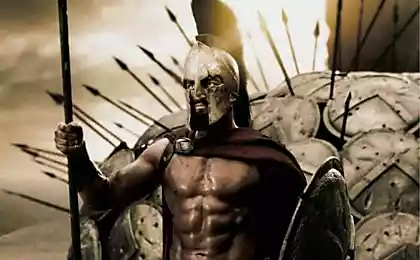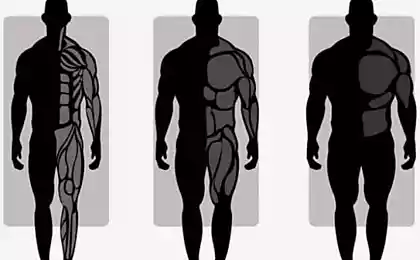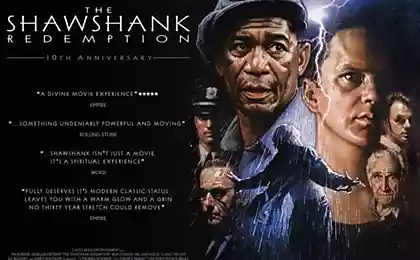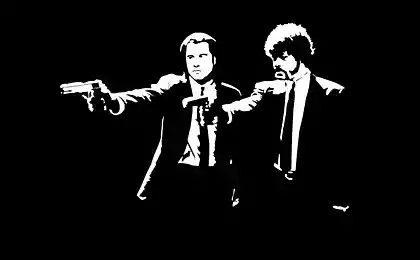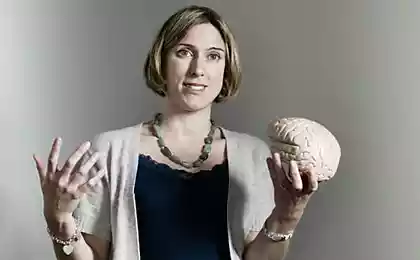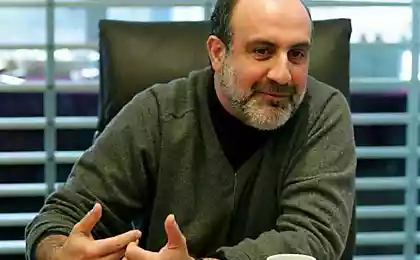830
Link to the risk
They say that the risk-noble cause. Risk for people willing to sacrifice everything, including life. From the point of view of self-preservation instinct and common sense such behavior is inexplicable.
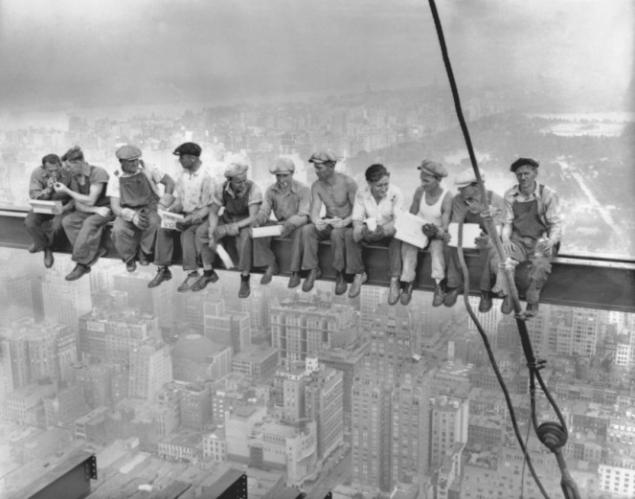
Beginning
Ancient people, in search of food and shelter, are always subjected themselves to mortal danger. As a result, the average life expectancy was less than thirty years. Even the Romans in the era of the dawn of his empire rarely lived to forty. Despite this, they were motivated by the risk, otherwise they expect hunger and cold. The stronger and brighter were positive emotions to achieve the objective. Thus, the risk in the distant past is taken for granted. Of course, all of this for millions of years of prehistory imprinted in the human genome.
3200% profit
When formed trade and monetary relations, the risk would be paid in specie. For example, in the book "Nathaniel's Nutmeg" explains West India Company, which supplied nutmeg in England from the Indonesian islands. Giles Milton described the deadly danger faced by Dutch sailors. He led the heartbreaking stories of real people, in particular, the sailors at the hands of local cannibals. Or as a whole ship's command agonized from terrible diseases. In this case, Giles Milton said that to be in place accidents of his books can anyone who is recovering on the island of Java. That is why the cost of risk was expressed in the 3200% mark-up. Initially, this margin was shocked buyers, but after a full reading of the book of Milton, outrage buyers quickly descended to "no", and the number of competitors in the Dutch company has increased dramatically. Like, if you really deadly risk, only for big money.
Risk unknowingly
In the early twentieth century, the risk of an abstraction that combines adventurism adventurers and reward of success, has acquired scientific, philosophical or rather outlines. So in 1921, the American financier Frank Knight summed up the relationship between the ambiguity of the decision and the result. "The risk - is the unpredictability of traffic to clear goals - says Frank Knight - for example, bonds with a fixed interest can bring much less profit than stocks, although both papers focused on profitability. At the same time, these financial instruments are in any case focused on money. The only difference is that the low-risk bonds generate a small margin, at the same time shares, by contrast, can make the owner of a rich man, or may bring him bankrupt. So - beginners in the stock market almost always buy stocks and often burn out ».
Ultimately, Frank Knight began to assess the risk in terms of probability. Despite the controversial nature of his allegations, the financier provides numerous examples from personal experience. For example, in a bag has four balls, one - white, and three - black. If a person knows about it, he said in advance that will take out the white ball with 25% probability. If he is ignorant, thinks that equally can get, both white and black ball. In other words, less informed people more at risk.
Russian Roulette
In Tsarist Russia among young officers, it was fashionable to take risks. When in 1870 the military nobility began to arm revolver Smith & Wesson, noble offspring immediately invented the "Russian roulette».
"Being branded a coward was disgraceful - recalled Orel landlord Stanislav Rome - that's why we argued with each other, that we - are not afraid of anyone, even - death. To do this, take turns spinning the reels in the gap cham- bers are just one round, and brings it to his temple. Then he pressed the trigger. In our circles it was indiscriminate madness. Teen woman adored these brave men. " Similarly, the third attempt, died Vladimir Mayakovsky, right, however, the barrel is not in the head and chest. Thus, many people are at risk in order to attract attention.
Physiology
Scientists studying the mechanism of formation of emotions, believe that under stressful conditions triggered mechanism overcompensation. Simply put, the worse the soul, the more you want something so special. This is a passionate desire to signal physiological systems, including hormonal.
According to the views of Dr. Skinner, a person has a biological mechanism to distinguish between "bad" and "good." If an individual is experiencing negative emotions, he extrapolates their future in bright colors, and so that survival instinct dulled. "Emotional arousal plays an important role in overcoming conservatism, stereotyped reactions" - wrote the Russian physiologist Academician Paul Simon. In other words, the risk is a response to dissatisfaction with the current situation. If it is - so, we run the risk, when dissatisfied with their lives.

Beginning
Ancient people, in search of food and shelter, are always subjected themselves to mortal danger. As a result, the average life expectancy was less than thirty years. Even the Romans in the era of the dawn of his empire rarely lived to forty. Despite this, they were motivated by the risk, otherwise they expect hunger and cold. The stronger and brighter were positive emotions to achieve the objective. Thus, the risk in the distant past is taken for granted. Of course, all of this for millions of years of prehistory imprinted in the human genome.
3200% profit
When formed trade and monetary relations, the risk would be paid in specie. For example, in the book "Nathaniel's Nutmeg" explains West India Company, which supplied nutmeg in England from the Indonesian islands. Giles Milton described the deadly danger faced by Dutch sailors. He led the heartbreaking stories of real people, in particular, the sailors at the hands of local cannibals. Or as a whole ship's command agonized from terrible diseases. In this case, Giles Milton said that to be in place accidents of his books can anyone who is recovering on the island of Java. That is why the cost of risk was expressed in the 3200% mark-up. Initially, this margin was shocked buyers, but after a full reading of the book of Milton, outrage buyers quickly descended to "no", and the number of competitors in the Dutch company has increased dramatically. Like, if you really deadly risk, only for big money.
Risk unknowingly
In the early twentieth century, the risk of an abstraction that combines adventurism adventurers and reward of success, has acquired scientific, philosophical or rather outlines. So in 1921, the American financier Frank Knight summed up the relationship between the ambiguity of the decision and the result. "The risk - is the unpredictability of traffic to clear goals - says Frank Knight - for example, bonds with a fixed interest can bring much less profit than stocks, although both papers focused on profitability. At the same time, these financial instruments are in any case focused on money. The only difference is that the low-risk bonds generate a small margin, at the same time shares, by contrast, can make the owner of a rich man, or may bring him bankrupt. So - beginners in the stock market almost always buy stocks and often burn out ».
Ultimately, Frank Knight began to assess the risk in terms of probability. Despite the controversial nature of his allegations, the financier provides numerous examples from personal experience. For example, in a bag has four balls, one - white, and three - black. If a person knows about it, he said in advance that will take out the white ball with 25% probability. If he is ignorant, thinks that equally can get, both white and black ball. In other words, less informed people more at risk.
Russian Roulette
In Tsarist Russia among young officers, it was fashionable to take risks. When in 1870 the military nobility began to arm revolver Smith & Wesson, noble offspring immediately invented the "Russian roulette».
"Being branded a coward was disgraceful - recalled Orel landlord Stanislav Rome - that's why we argued with each other, that we - are not afraid of anyone, even - death. To do this, take turns spinning the reels in the gap cham- bers are just one round, and brings it to his temple. Then he pressed the trigger. In our circles it was indiscriminate madness. Teen woman adored these brave men. " Similarly, the third attempt, died Vladimir Mayakovsky, right, however, the barrel is not in the head and chest. Thus, many people are at risk in order to attract attention.
Physiology
Scientists studying the mechanism of formation of emotions, believe that under stressful conditions triggered mechanism overcompensation. Simply put, the worse the soul, the more you want something so special. This is a passionate desire to signal physiological systems, including hormonal.
According to the views of Dr. Skinner, a person has a biological mechanism to distinguish between "bad" and "good." If an individual is experiencing negative emotions, he extrapolates their future in bright colors, and so that survival instinct dulled. "Emotional arousal plays an important role in overcoming conservatism, stereotyped reactions" - wrote the Russian physiologist Academician Paul Simon. In other words, the risk is a response to dissatisfaction with the current situation. If it is - so, we run the risk, when dissatisfied with their lives.

